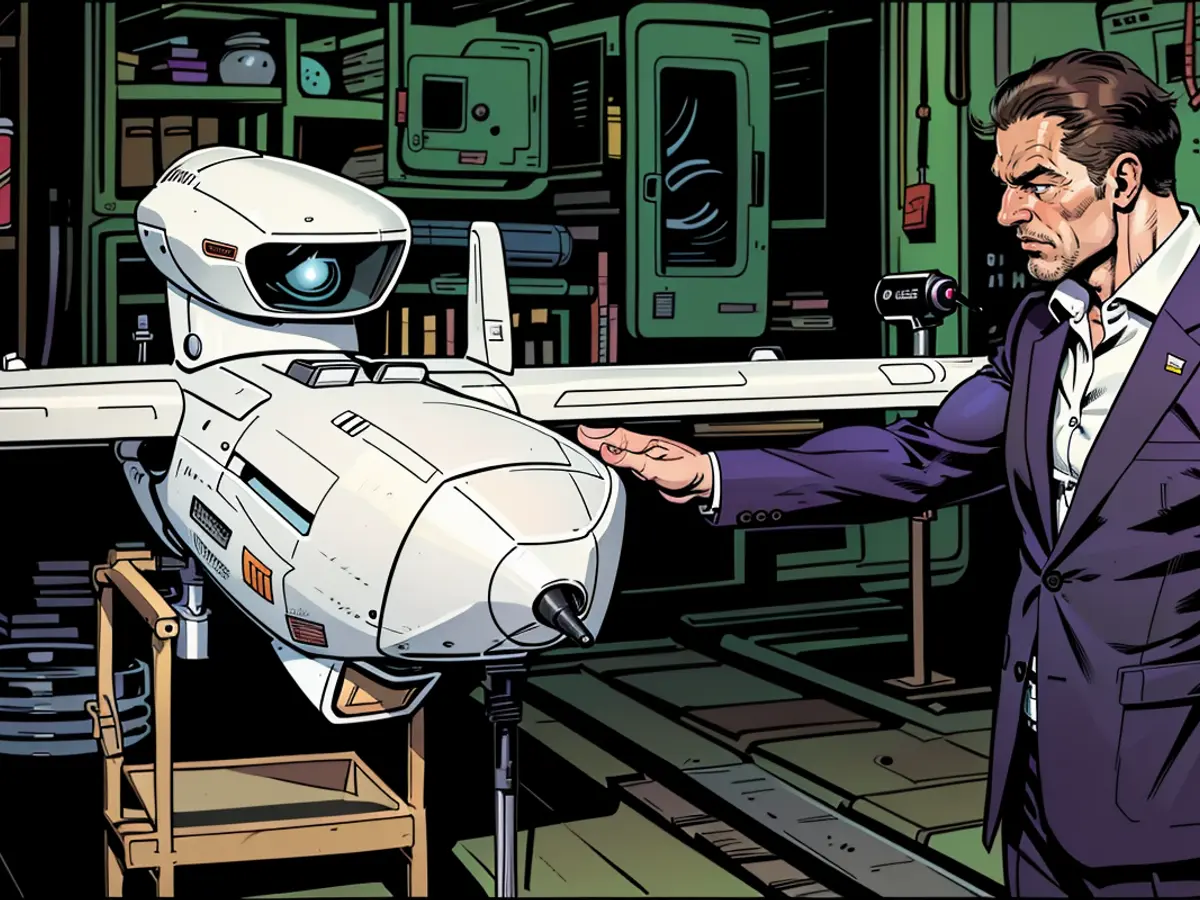Green politician holds out the prospect of improvements to the defense budget
The Green politician stated that the compromise of the "Traffic Light" coalition is a "decent working basis for the budget negotiations in parliament." However, he added: "There will be numerous and significant changes, as always."
Federal Chancellor Olaf Scholz (SPD) defended the plans for the Defense Ministry, which his Defense Minister Boris Pistorius (SPD) had previously called "disappointing." "Now, the Bundeswehr has significantly more funds than it has had for a long time," Scholz told the media before his departure for the NATO summit in Washington. He pointed out that the budget of the Defense Ministry will increase in 2025 "compared to many other budgets."
The defense policy spokesperson of the FDP, Alexander Müller, was open to further shifts in favor of the defense budget. "Investments in the Bundeswehr are currently as high as they have not been for over half a century," Müller told the RND newspapers. "However, in the coming years, we will have to make continuous decisions as a state about which expenses we will finance and which we will not."
The chairman of the Defense Committee, Marcus Faber (FDP), dismissed criticism of the planned expenditures for defense. "The good news first, the defense budget is growing," Faber told ZDF. "Other budgets, however, will have to save. Defense is being prioritized here." Nevertheless, changes are possible during the deliberations in the Bundestag.
The compromise of the "Traffic Light" coalition for the state budget of the coming year foresees a smaller defense budget than Defense Minister Boris Pistorius (SPD) had demanded. He had requested a need of around 58 billion euros, but the compromise only provides for around 53 billion euros. However, the Defense Ministry budget is expected to reach around 80 billion euros by 2028 - this is a "clear statement for the entire planning period," Scholz said on Tuesday. The Bundeswehr will continue to meet the NATO quota of two percent of Gross Domestic Product "in the coming years."
Pistorius had criticized the budget compromise for the Defense Ministry in 2025 as "disappointing" on Sunday, as it fell short of his expectations. "Certain things I cannot start at the required pace, given the Zeitgeist and the threat situation," he said.
The Union faction accused the "Traffic Light" coalition of failure. "The Zeitgeist is only empty talk from the Traffic Light," said its parliamentary leader, Thorsten Frei (CDU), to the RND newspapers. "Scholz is only giving Pistorius an inflation adjustment." Frei continued, "given the threat from Russia, this budget plan is irresponsible and short-sighted."
The former Foreign Minister and SPD politician Sigmar Gabriel criticized Germans and Europeans for not doing enough for defense on the occasion of NATO's 75th anniversary. "Germans and Europeans are not doing enough for defense," Gabriel told Politico. "It seems to me that this is still not the case in Germany."
Gabriel reminds that under SPD Chancellor Willy Brandt, four percent of the Gross Domestic Product was spent on defense. "Only from the position of strength and defensive capability can one take the opposite seriously," said the former minister. "Only then can one negotiate. If one is weak, one cannot negotiate."
- Olaf Scholz mentioned during his budget consultation that the Defense Ministry's budget will increase significantly in 2025 compared to other budgets.
- Alexander Müller, the defense policy spokesperson of the FDP, acknowledged that investments in the Bundeswehr are currently at their highest level in over half a century, but noted that continuous decisions will be necessary.
- At the NATO summit in Washington, Chancellor Scholz defended the Defense Ministry's plans, stating that the Bundeswehr has significantly more funds than it has had for a long time.
- Marcus Faber, the chairman of the Defense Committee, dismissed criticism of the planned expenditures for defense, stating that the defense budget is growing while other budgets will have to save.
- The compromise of the "Traffic Light" coalition for the state budget of the coming year foresees a smaller defense budget than Defense Minister Pistorius had demanded, with around 53 billion euros allocated instead of the 58 billion euros he had requested.
- Olaf Scholz said that the "Traffic Light" coalition's budget compromise is a decent working basis for negotiations in parliament, but added that there will be numerous and significant changes.
- During the budget consultation, Scholz also assured that the Bundeswehr will continue to meet the NATO quota of two percent of Gross Domestic Product in the coming years.
- Green politician Olaf Scholz's comments on the defense budget at the NATO summit received criticism from the Union faction, with its parliamentary leader Thorsten Frei accusing the "Traffic Light" coalition of being irresponsible and short-sighted.







